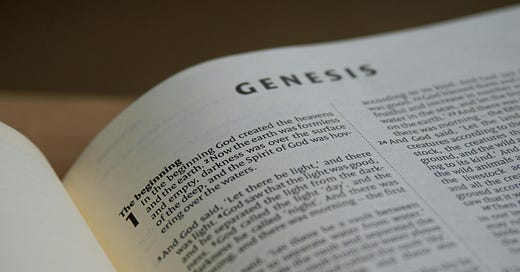Genesis 1:1 is traditionally translated, “In the beginning God created the heavens and the earth.” But in the original Hebrew, the phrase that’s translated “In the beginning” doesn’t have “the.”
So, explains Bible professor Josh Wilson, some recent translators think “beginning” is in construct rather than absolute. That means it would be translated something like, “In the beginning of God creating…” or “In the beginning, when God created…”
This would make the first verse of the Bible only the first part of the sentence, which would continue in verse 2. Take this Catholic translation, for instance:
[1] In the beginning, when God created the heavens and the earth, [2] the earth was a formless wasteland, and darkness covered the abyss, while a mighty wind swept over the waters.
Genesis 1:1-2 (NAB 1970)
This translation suggests that “the earth” already existed as “a formless wasteland” when God started creating, meaning that Genesis 1:1 does not record the beginning of the universe. That could pose some foundational issues for the doctrine that God created everything ex nihilo (out of nothing).
Wilson observes, however, that in Hebrew, the definite article (“the”) does not have to be present for there to be a definite sense. Even in English, the word “beginning” is a “relator noun,” like the words “front, back, middle, left (side), right (side), and end.” This type of noun usually gets paired with another noun to clarify its meaning (“front of the car,” “back of the house,” etc.). The same is true in Hebrew. So, when it’s by itself, “the” is implied.
Plus, he argues, if the Hebrew word for “beginning” were in construct, it would most likely have other syntactical features that it lacks, making the traditional translation more probable.
P.S. A version of this brief Bible insight originally appeared in Project 18:15, my weekly briefing of news, Bible, and history. Get the next one in your inbox this weekend:
Then, subscribe here on Substack for reposted highlights like this one:




